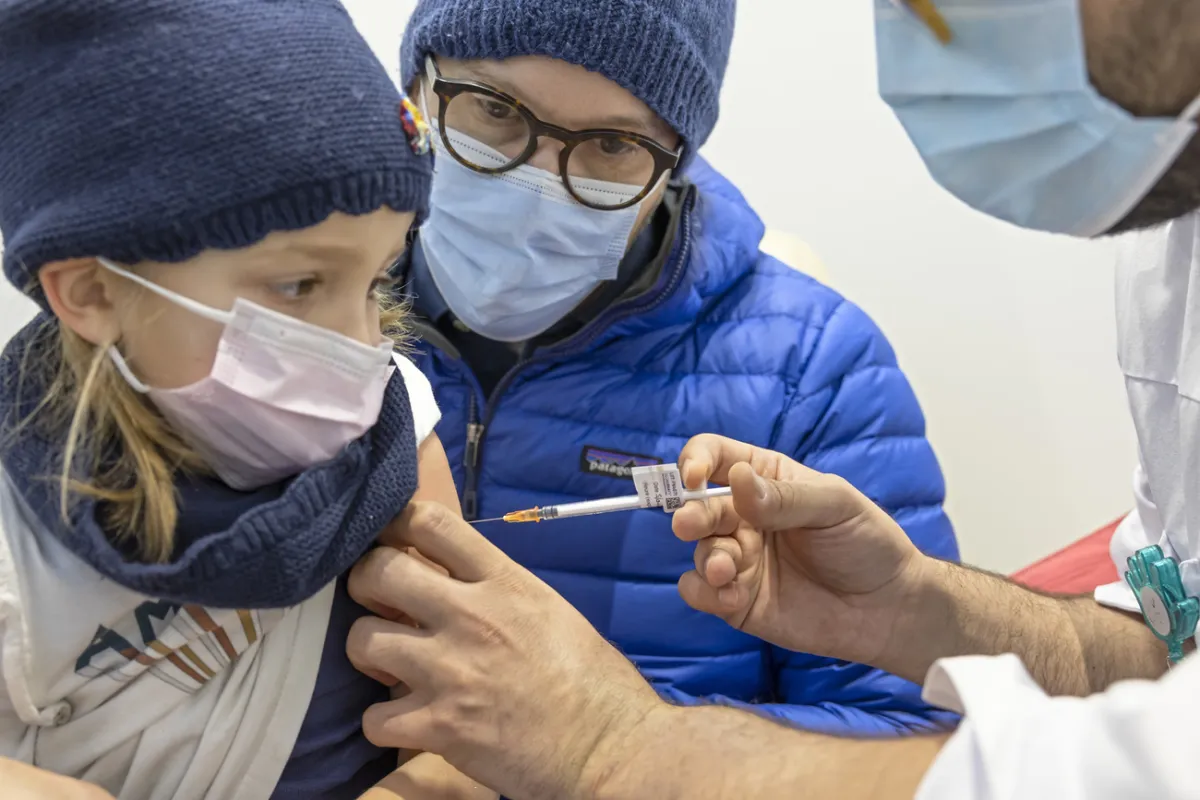
Vaccine-Sharing Pandemic Measures Agreed In Geneva
+Get the most important news from Switzerland in your inbox
The historic draft agreement to prepare the world for pandemics still needs to be formally approved by the World Health Assembly in May.
“History is being made today in Geneva,” WHO Director-General Tedros Adhanom Ghebreyesus told journalists.
+ WHO sets 2025 pandemic treaty goal
Symbolically, Tedros Adhanom Ghebreyesus, like his second-in-command, Michael Ryan, wore a green tie, the color used to validate each clause of this arrangement. And the champagne was uncorked.
Mixed reactionAfter more than three years of discussions, an agreement in principle appeared to have been reached on Saturday morning. But discussion dragged on for several more days over the fine details of the text, such as knowledge transfer to developing countries.
Now it has been agreed, members will commit to facilitating,“voluntarily and on mutually agreed terms,” the manufacture of vaccines and other countermeasures in all regions of the world.
+ Inside Geneva Podcast: Will we get a pandemic treaty?
Most NGOs, such as Médecins Sans Frontières (MSF), welcome the positive move for greater“solidarity” and a first joint international mechanism on this issue. Others denounce the“hypocrisy” of rich countries, which will not sufficiently guarantee equitable access to scientific know-how.
But a mandatory transfer of technology looks impossible. Some states want to choose who they collaborate with, to avoid future competitors, Tedros Adhanom Ghebreyesus admitted.
The stated goal was to provide the international community with resources to prevent further discrimination in the event of a pandemic. The delay in delivering doses during the coronavirus outbreak had caused many additional deaths in developing countries.
Affordable pricesWealthy countries, including Switzerland, have guard their pharmaceutical companies and intellectual property. This has come into sharper focus with the threat of United States tariffs.
According to the WHO agreement, a Pathogen Access and Benefit Sharing (PABS) system will be launched, but some details still need to be negotiated in an annex.
In future, 10% of the volume of any vaccine or technology used to combat pandemics must be donated“rapidly” to the WHO. An equivalent share must be sold to the organisation at affordable prices. A global network led by WHO will also be established to remove barriers in supply chains. But decisions on this mechanism will depend on the various parties to the agreement.
Developing countries, for their part, have relented and agreed to invest more in pandemic preparedness, particularly in animal health.
Adapted from French by DeepL/mga
How we workWe select the most relevant news for an international audience and use automatic translation tools such as DeepL to translate them into English. An editor then briefly reviews the translation for clarity and accuracy before publication. Providing you with automatically translated news gives us the time to write more in-depth articles. The news stories we select have been written and carefully fact-checked by an external editorial team from news agencies such as Bloomberg or Keystone.
Did you find this explanation helpful? Please fill out this short survey to help us understand your needs: External link
Popular Stories More Workplace Switzerland Trump tariff shock: how Switzerland is positioning itself Read more: Trump tariff shock: how Switzerland is positioning itsel
Legal Disclaimer:
MENAFN provides the
information “as is” without warranty of any kind. We do not accept
any responsibility or liability for the accuracy, content, images,
videos, licenses, completeness, legality, or reliability of the information
contained in this article. If you have any complaints or copyright
issues related to this article, kindly contact the provider above.

















Comments
No comment